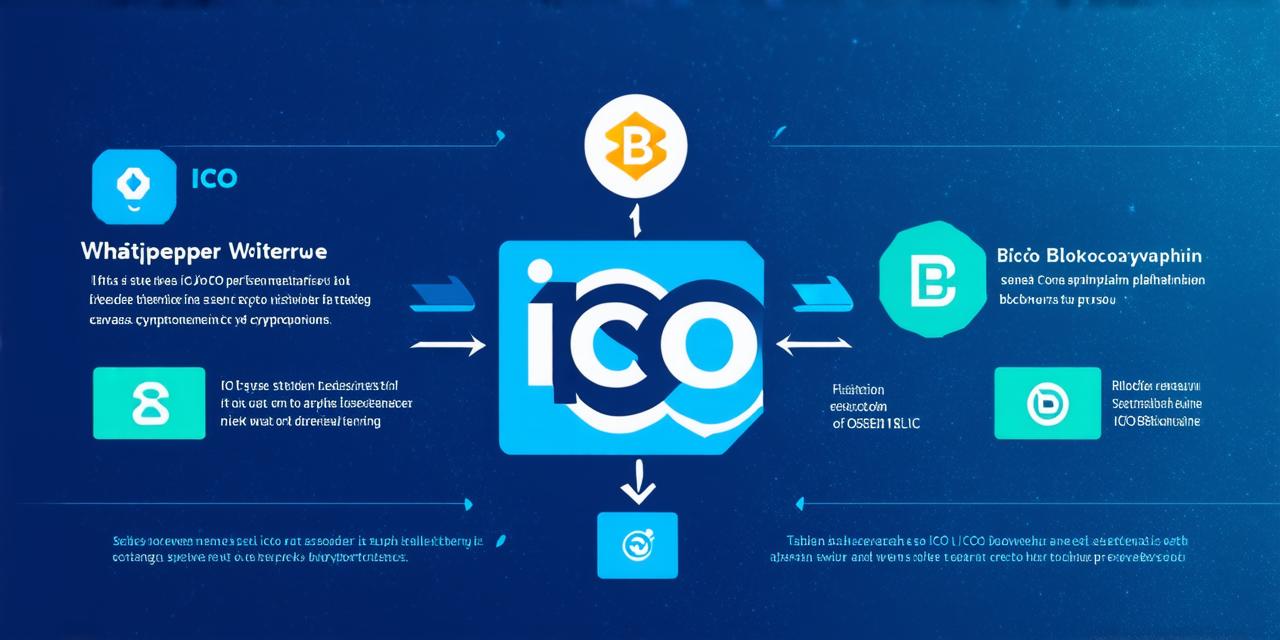
An Initial Coin Offering (ICO) is a fundraising mechanism used to raise capital for blockchain projects and startups. It is a way for companies to issue their own cryptocurrency as a means of raising funds from investors.
The most common type of ICO is the token sale, where companies sell tokens that represent ownership or a stake in the company’s future success in exchange for cryptocurrencies like Bitcoin and Ethereum.
ICOs have become increasingly popular since their introduction in 2013, with billions of dollars raised in funds through ICOs to date. However, they are also not without risk, as many ICOs have failed, leaving investors with worthless tokens or even stolen funds.
How does an ICO work?
An ICO typically involves the following steps:
- The company creates a whitepaper outlining the details of their project and how they will use the funds raised.
- The company sets up a platform, such as Ethereum, to host the ICO.
- The company creates tokens that represent ownership or a stake in the company’s future success.
- Investors can purchase these tokens by sending cryptocurrencies to the company’s wallet address.
- Once the ICO is complete and funds have been raised, the company uses the funds to develop and launch their project.
- The tokens are then listed on cryptocurrency exchanges where investors can buy and sell them.
Benefits of an ICO
There are several benefits to using an ICO as a fundraising mechanism:
- Fast and efficient: ICOs allow companies to raise funds quickly and efficiently, without the need for lengthy legal or regulatory processes.
- Access to global investors: ICOs can be accessed by investors from all over the world, making it easier for startups to tap into a global market.
- Lower costs: ICOs typically have lower costs than traditional fundraising methods, as they do not require intermediaries or legal fees.
- High levels of transparency: Most ICOs are conducted on public blockchains, which provide high levels of transparency and allow investors to track the progress of the project.
- Tokenization: ICOs allow companies to tokenize their assets or business models, creating new opportunities for revenue streams and use cases.
Risks of an ICO
While ICOs can be a powerful fundraising mechanism, they are not without risk. Some of the risks associated with ICOs include:
- Lack of regulation: The regulatory environment for ICOs is still evolving in many countries, which can make it difficult for companies to navigate the legal landscape and protect themselves from fraud or other legal issues.
- Market volatility: Cryptocurrency markets are highly volatile, and the value of tokens sold through an ICO can fluctuate significantly. This can leave investors with worthless tokens or even stolen funds.
- Lack of product-market fit: Many ICOs have failed because they did not have a clear product-market fit, meaning that there was no demand for the product or service offered by the company.
- Founder mismanagement: In some cases, founders of ICOs have been accused of using the funds raised to personal gain rather than developing the project as promised.
- Security vulnerabilities: ICOs are often conducted on public blockchains, which can be vulnerable to security breaches and hacking attacks.
Real-life examples of successful ICOs
There have been many successful ICOs over the years, including:
- Ethereum: The Ethereum ICO in 2014 raised $15 million in funds and went on to become one of the most popular cryptocurrency platforms in use today.
- Filecoin: The Filecoin ICO in 2017 raised $203 million in funds and has since gone on to become a leading decentralized storage platform.
- Dfinity Network: The Dfinity Network ICO in 2018 raised $61 million in funds and has since been used to build a high-performance blockchain for decentralized applications (dApps).
- Kyber Network: The Kyber Network ICO in 2017 raised $13 million in funds and has since become a leading liquidity provider for cryptocurrencies.
